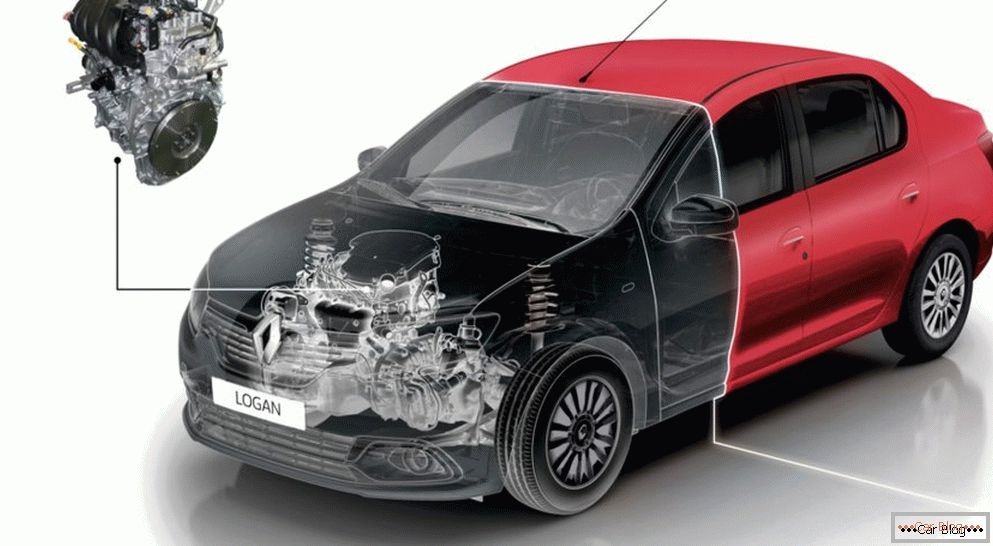>
Among motorists of any age there are legends about “million-plus motors”, which are able to overcome huge distances without significant breakdowns and even more so - complete failure. Some believe that such stories are very exaggerated, and the average mileage before overhaul should be 150-250 thousand kilometers. However, in reality, the most reliable engines of passenger cars are capable of even more with proper care. Of course, if you do not pay proper attention to the motor, it will quickly force you to engage in repairs, despite all the perfection of the design. Therefore, the development of brilliant engineers must be treated with respect - and they will answer you with exceptional reliability and durability.
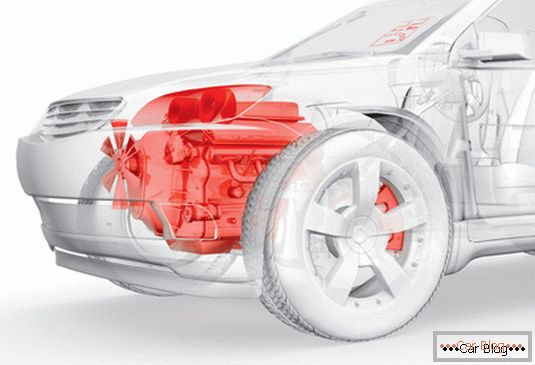
The engine is the heart of the car
Diesel engines
Любые дизельные двигатели всегда считаются более надёжными, чем бензиновые — это обусловлено особенностями их конструкции, предполагающей работу на низких оборотах, большую стабильность подачи топлива, уменьшенную температуру сгорания. Однако некоторые моторы имеют относительно малый срок службы — в особенности это касается автомобилей последних лет выпуска, на которых дизели имеют высокую степень форсирования и огромное количество электронного оборудования. Тем не менее классические силовые агрегаты всегда готовы отстоять честь дизелей, и доказать их превосходную долговечность.Читать далее о самых надёжных двигателях-->
Unbeatable Mercedes
If consumers have a question about which diesel engine is the most reliable, most experts can answer that you should definitely pay close attention to the products of German engineers - and more specifically, from Mercedes-Benz. The most durable is considered to be the inline five-cylinder engine of the OM602 series, which is equipped with only two valves for one cylinder and a primitive mechanical fuel pump, invented a few decades ago. These power units were produced in the time interval of 1985–2002. The power of the motor corresponds to the applied technologies - it varied within 90–130 horsepower, which did not allow vehicles with such engines to be considered dynamic.
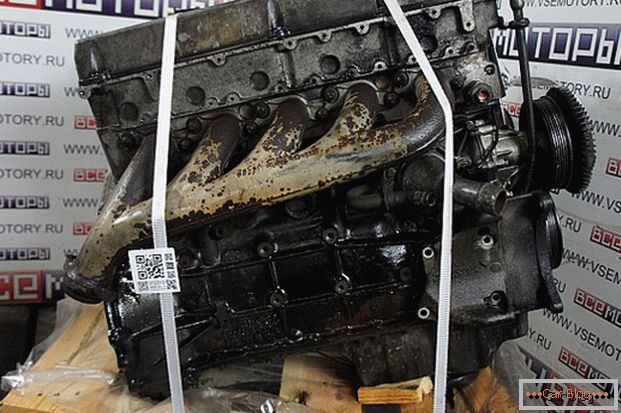
Not for nothing, they quickly disappeared from under the hoods of cars W124 and W201, firmly settled in the utilitarian versions of the G-class SUV, as well as in commercial vans Sprinter. The owners of these vehicles liked the incredible reliability, which was combined with low fuel consumption, huge burden and the ability to endure the heaviest loads. With normal care, such diesel engines passed at least 500 thousand kilometers to overhaul. On some cars, which were operated in conditions close to ideal, the figure reached up to two million kilometers without serious intervention by repairmen. Of course, even such “eternal” engines require constant attention - it’s worth paying attention to the mounted equipment and fuel supply equipment.
Bavarian genius
BMW engineers, who have long earned the installation of monuments on most racing tracks, were able to prove that the most reliable diesel engine does not have to be slow and suitable for installation solely on utilitarian machines. M57 series engines had a volume of 3 liters and six-cylinder in-line layout. Years of production of such automotive units occurred in 1998–2008. The power was quite high - it ranged from 201 to 286 horsepower, which allowed the cars to look like real sports cars compared to other diesel competitors.
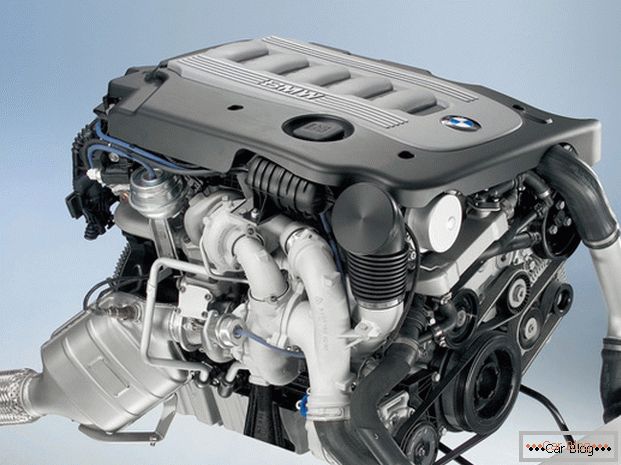
The engines were installed on various BMW cars - from the first to the seventh series, which provided them with real popularity and wide distribution. In addition, the Range Rover SUVs, for which at one time it was the only alternative to gasoline engines with a very high fuel consumption, also used a similar powertrain. Calling only insignificant problems, the engines of the M57 series passed 400-500 thousand kilometers without major problems to overhaul, while individual drivers reported trouble-free mileage of more than 1 million kilometers. Increased attention should be paid to the fuel system of diesel engines, which is afraid of low-quality fuel - in addition, it is recommended to monitor the level of oil, quickly consumed for waste.
Japanese classics
In addition, a reliable diesel engine was also produced by the Japanese corporation Toyota - moreover, this power unit is highly valued by domestic motorists who are very reluctant to part with cars that were equipped with similar technology. Such is the engine 1HZ, which had a working volume of 4.2 liters in a row arrangement of six cylinders. The technique is very similar to that used by Mercedes - two valves for each cylinder, a primitive fuel pump, a simplified design of the main components. An interesting point is the camshaft drive from the injection pump - this allows you to significantly increase the reliability of the belt, although it creates an additional load for the gears. The power of this engine, produced in 1990-1998, is 129 horsepower.
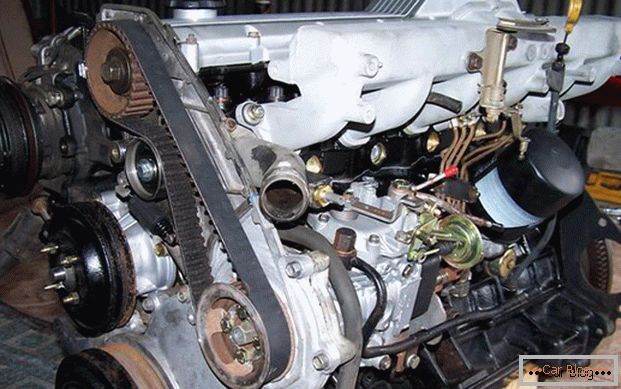
Motor was installed on the Toyota Land Cruiser SUV  Discounts for new cars! Profitable loan from 9.9% installments 0%
Discounts for new cars! Profitable loan from 9.9% installments 0%  adom.ru, as well as on the compact Coaster bus - for such vehicles its reliability and high torque was irreplaceable. The average mileage before overhaul was 650–750 thousand kilometers, which was the reason for the love of Russian motorists to Japanese diesel engines. Moreover, unlike the German technology, this engine can be refueled even with low-quality diesel fuel, suitable only for agricultural machinery - this was also a significant advantage. A real celebrity was brought to the motor rally, created by the Japanese environmental protection organization - they mounted an installation on the Land Cruiser SUV that converted the vegetable oil used in restaurants into biodiesel, which this power unit consumed without unnecessary trouble.
adom.ru, as well as on the compact Coaster bus - for such vehicles its reliability and high torque was irreplaceable. The average mileage before overhaul was 650–750 thousand kilometers, which was the reason for the love of Russian motorists to Japanese diesel engines. Moreover, unlike the German technology, this engine can be refueled even with low-quality diesel fuel, suitable only for agricultural machinery - this was also a significant advantage. A real celebrity was brought to the motor rally, created by the Japanese environmental protection organization - they mounted an installation on the Land Cruiser SUV that converted the vegetable oil used in restaurants into biodiesel, which this power unit consumed without unnecessary trouble.
Video on how diesel engines work:
Petrol engines
Of course, gasoline engines are always subject to greater wear - they operate at higher speeds, they get hot enough, they require the use of exclusively high-quality oil. However, they have their own advantages, including a lower freezing point of fuel, a relatively low cost of components, ease of maintenance. Therefore, some motorists, focusing solely on the durability of engines, yet prefer gasoline powertrains.
Unrivaled "Japanese"
If it is the Germans who hold the indisputable championship among diesel engines, then the most reliable engines of cars running on gasoline are made by the Japanese. We are talking about a series of 2JZ-GE from Toyota - it is interesting that these power units used fairly new technical solutions that did not prevent them from occupying leading positions in durability ratings year after year. In particular, these inline six-cylinder automobile units were equipped with a system for adjusting the valve timing and had four valves for each cylinder. The power of the Toyota engines produced in the period 1990–2007 was 215–230 horsepower.
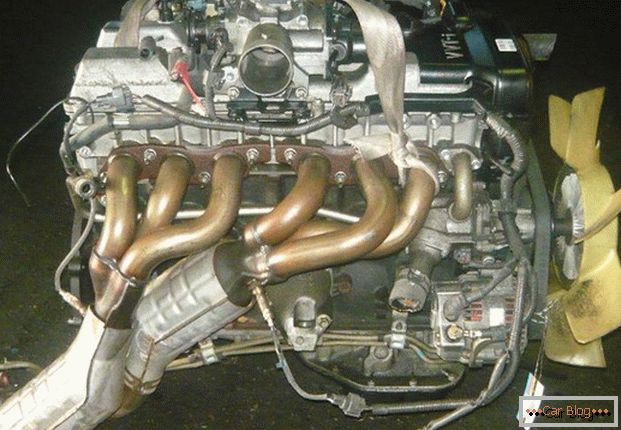
They were installed on a variety of vehicles, but in Russia such engines are best known for cars Toyota Supra and Lexus GS300. The average mileage without significant interference for these engines was approximately 0.9–1.2 million kilometers, which made it possible to talk about an incredible benefit for owners of cars with such drive units. Among the drawbacks of such power units, it is possible to point out only problems with the drive of the timing mechanism, which fails when the motor is not frequently cleaned from solid combustion products. In addition, the turbocharged version of the engine, called the 2JZ-GTE, had only a third of this resource due to higher loads and an increased number of moving components.
Asian traditions
If you ask tuning fans what engine is the most reliable, they will tell you about the powertrains produced by the Japanese corporation Mitsubishi. More specifically, the 4G63 inline 2-liter four-cylinder engine, which is often subjected to very serious improvements due to its increased resource and the possibility of obtaining considerable power, merits close attention. It was produced from 1982 to 2004, and during the production time it was time to change the carburetor first to single-point and then distributed injection, simultaneously increasing the power from 92 to 136 horsepower.
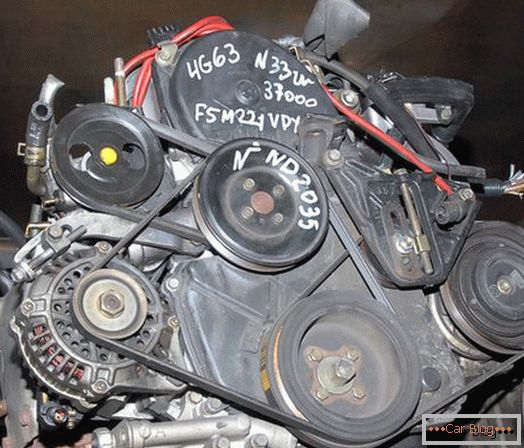
The motor was universal - due to its reliability and good reliability, it was installed on many models. We know this power unit for the Mitsubishi Lancer cars, and the Americans for the Dodge Ram and Mitsubishi L200 pickups, while the Koreans and the Chinese continued to use such equipment even after they discontinued production in Japan. The average mileage of the engine is 600-700 thousand kilometers, while individual cars went up to one and a half million kilometers without costly repairs. The engine is most afraid of overheating, which can make the “capital” urgent.
Power from German engineers
If you determine the most reliable engine in the world in the class of powerful power units, then the championship will go to BMW - the company very rarely succeeds in catching on the mediocre quality of its products. This time we will consider the engine with the layout of the V8, which belongs to the BMW M60 series. Power units with a volume of 4.0 liters and a nominal capacity of 286 horsepower were produced in the period 1992-1998.
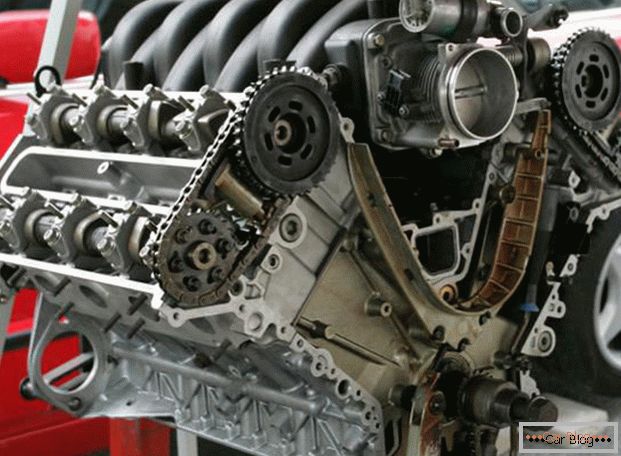
Such equipment was installed on large cars belonging to the fifth and seventh series. The average mileage to overhaul of European consumers was 450-500 thousand kilometers. However, this drive unit was discontinued due to Canadians and residents of the United States, whose gasoline sulfur content was not normalized at that time. As a result, the innovative nikasilovaya coating of cylinders simply collapsed, and a complete replacement of the unit was required, which cost the owners of cars a huge amount. In subsequent models of power units, preference was given to a cheaper and more reliable option - aluilsovomu coating.
Video on how ICEs work:
What does reliability depend on?
In most cases, the durability and reliability of the motors is determined by the applied technical solutions, as well as the production culture of the enterprise. However, there are a number of factors that depend solely on the consumer:
- Timeliness of service;
- Fuel quality and consumables used;
- Driving style;
- Perform preventive diagnosis.
Therefore, it is worth remembering that even after buying a car with the most reliable and structurally perfect engine you should not expect exceptional durability from it with the wrong attitude. The best option would be the passage of periodic preventive maintenance at a specialized service station or independent work, if you have the appropriate qualifications.



